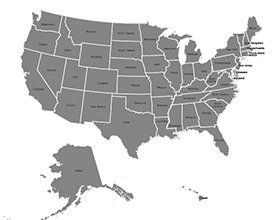Benefit Buzz - March 2023
Benefit tips brought to you by MFC Benefits, LLC

Learn more about the White House announcing the end of COVID-19 Emergency and the proposed rule that would expand access to contraceptive coverage:
WHITE HOUSE ANNOUNCES END OF COVID-19 EMERGENCY
On Jan. 30, 2023, the Biden administration
announced that it plans to end the COVID19 public health emergency (PHE) and
national emergency on May 11, 2023
.
The COVID-19 PHE and national emergency
were declared in early 2020 and have been
extended numerous times since then. The
Biden administration intends to extend the
emergency periods until May 11, 2023, and
then end both periods on that date.
According to the White House, this timeline
supports an orderly wind-down of
emergency measures and aligns with its
commitment to give at least 60 days’ notice
before the termination of the PHE.
The end of the COVID-19 emergency
periods triggers the end of many
emergency measures related to the federal
government’s pandemic response, including
some requirements for employer-sponsored health plans.
When the PHE ends, health plans will no
longer be required to cover COVID-19
diagnostic tests and related services
without cost sharing. Non-grandfathered
health plans will still be required to cover
recommended preventive services,
including COVID-19 immunizations, without
cost sharing, but this coverage requirement
will be limited to in-network providers.
In addition, during the COVID-19 outbreak
period (which is tied to the national
emergency), certain health plan deadlines
are extended, including those to request
special enrollment under HIPAA, elect
COBRA continuation coverage, and comply
with plans’ claims and appeals procedures.
The COVID-19 outbreak period is scheduled
to end on July 10, 2023
(60 days after the
national emergency ends). When it ends,
health plans can go back to their regular
deadlines.
PROPOSED RULE WOULD EXPAND ACCESS TO CONTRACEPTIVE COVERAGE
On Jan. 30, 2023, the Departments of
Health and Human Services, Labor and the
Treasury (Departments) released a new rule
that, if finalized, would expand access to
contraceptive coverage.
Non-grandfathered health plans must cover
certain contraceptive services without cost
sharing. However, current rules include an
exemption and optional accommodations
process for eligible employers with
sincerely held religious or moral objections
to contraceptive coverage. When an
employer qualifies for the exemption but
does not use the optional accommodations
process, employees and their dependents
do not have access to first-dollar
contraceptive coverage through these
plans.
The proposed rule would rescind the moral
exemption to contraceptive coverage but
retain the existing religious exemption. The
proposed rule would also establish a new
way for individuals to access contraceptives
at no cost when they are enrolled in plans
that qualify for an exemption and do not
use the optional accommodations process.
The proposed rule would allow individuals
to obtain contraceptive services at no cost
directly from a willing health care provider.
At this time, the rule is only in the proposed
form and has not been finalized. The
Departments are accepting comments on
the proposed rule until April 3, 2023.
Provided to you by MFC Benefits, LLC
© 2023 Zywave, Inc. All rights reserved
Download the PDF copy here.











